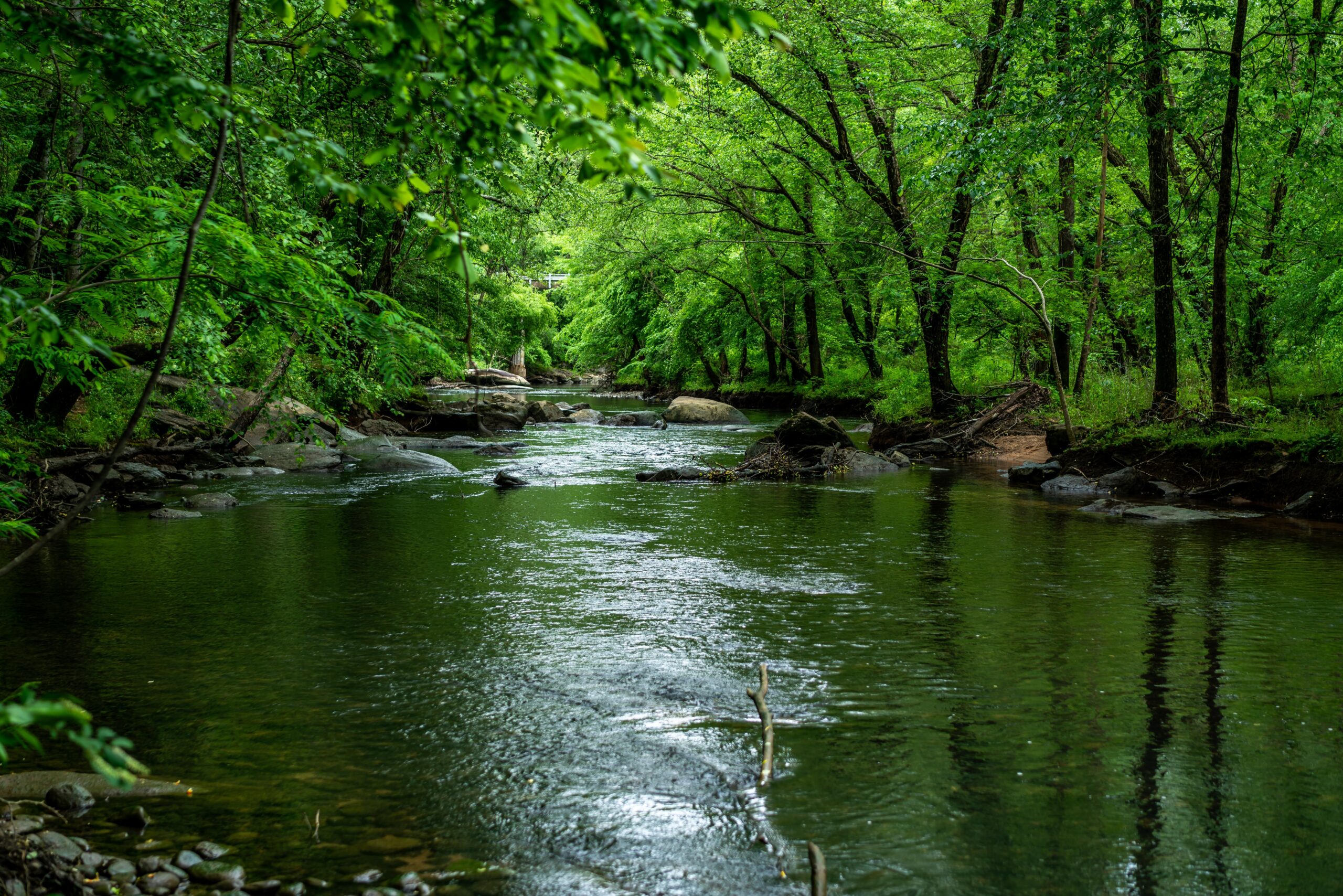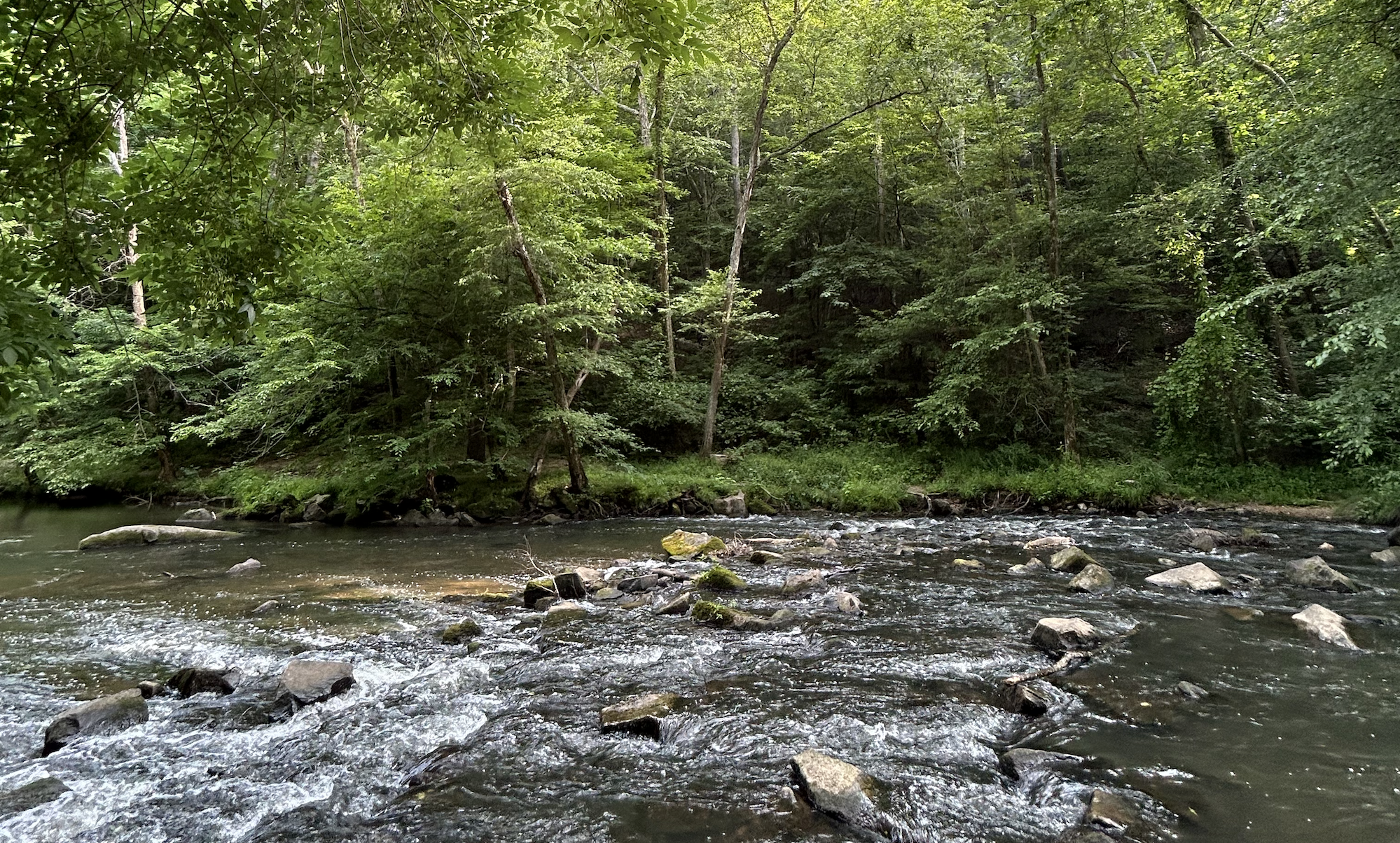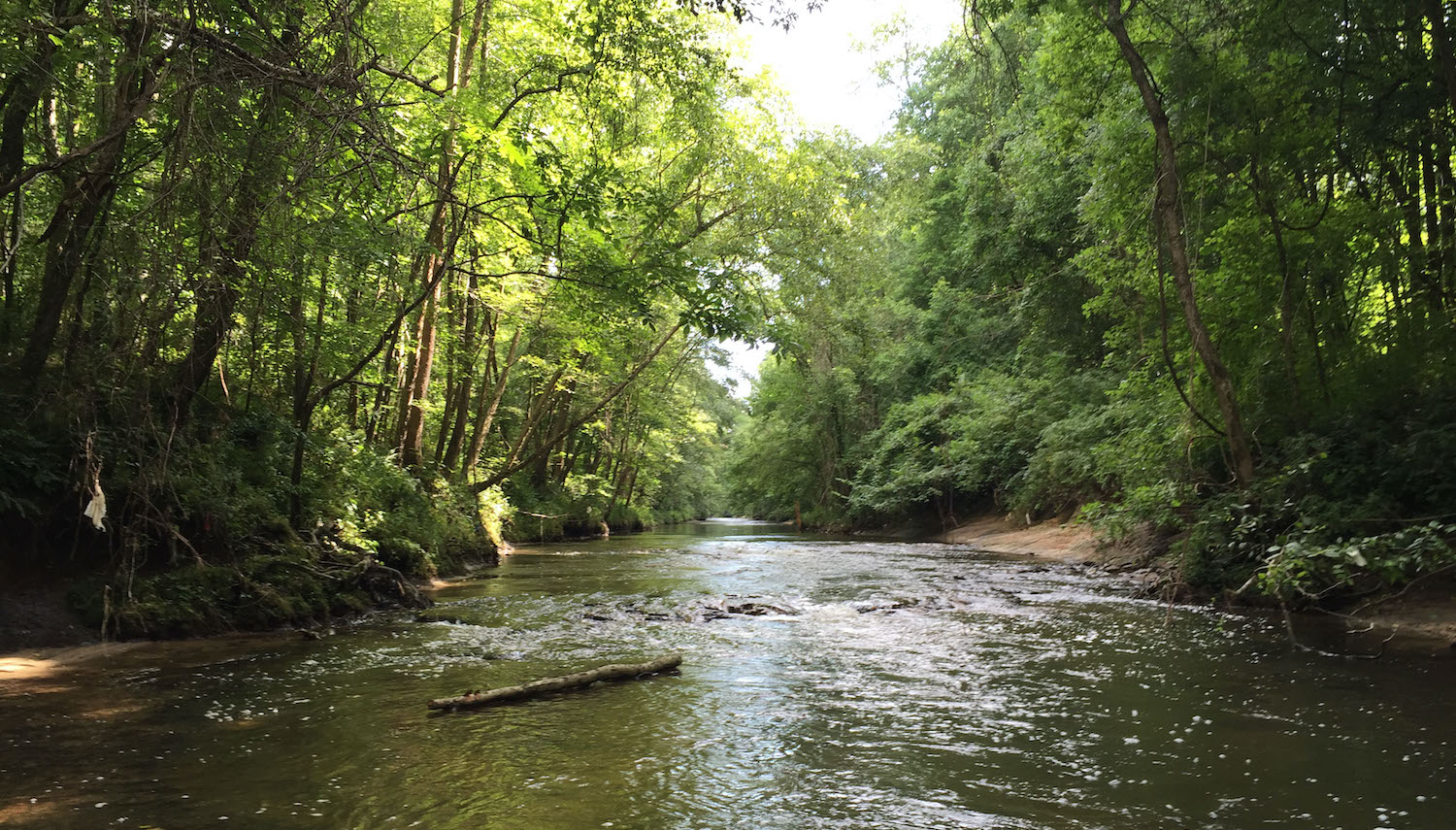Student Research Projects
WRRI Funds graduate student researchers across the state working to address a broad range of topics in water resources.
Explore Funded Student Projects
The table below contains a list of funded student projects dating back to 2020. Use the search bar to search particular topics, researchers, or key words. If a final report is available, it has been provided as a hyperlink within the title column. For a list of projects funded prior to 2020, or to view a final report for one of these projects, contact John Fear (jmfear@ncsu.edu).
| Project Title | Researcher | Advisor | Year started | In the News |
|---|---|---|---|---|
| Importance of Landfill Leachate as a Source of Biologically Available Nitrogen to North Carolina Coastal Waters | Ella Moore | Christopher Osburn | 2025 | |
| Invasive Species and Precipitation Shifts Influence Disease Dynamics in Aquatic Ecosystems | Glory Kidimbu | Ariane Peralta and Fidisoa Rasambainarivo | 2025 | |
| Use of Meltblown Nonwoven Fabric for Stormwater Runoff Treatment | Jaime Cardenas | Kyana Young | 2025 | |
| Biomanipulation of Zooplankton to Reduce Eutrophication in B. Everett Jordan Lake, North Carolina | Kaylee Luchansky | Joseph Covi | 2025 | |
| Time Series Radon-in-Water: An Eastern Wake County Well Water Study | Mason Hale | Carli Arendt | 2025 | |
| Expanding Coastal Invasion Frontiers: Examining the Impacts of Oyster Reef Restoration on the Success of Invasive Green Porcelain Crabs (Petrolisthes armatus) | Mic Schulte | April Blakeslee | 2025 | |
| Determination of Secondary Organic Aerosol Formation from Cyanobacterial Harmful Algal Blooms | Samantha Bell | Jason Surratt | 2025 | |
| Identification of Polyphosphate Accumulating Organisms in an NC Wastewater Treatment Plant and Factors that Affect Their Performance in Enhanced Biological Phosphorus Removal | Autumn Robinson | Erin Field | 2024 | from WRRI |
| Assessing Perceptions of Salt Marsh in the Residential Landscape in Central Coastal North Carolina | Mary-Margaret McKinney | Rachel Gittman and Cynthia Grace-McCaskey | 2024 | from WRRI |
| What are the Odds? Probabilistic Flood Hazard Assessment for New Bern, North Carolina | John (Jack) Baer | Antonia Sebastian | 2024 | from WRRI |
| Understanding Perceptions, Impacts, and Responses Related to Climate Change in Ocracoke, North Carolina | Bevin Hardy | 2024 | from WRRI | |
| Assessment and Mitigation of Microplastic Pollution in Treated Wastewater and Biosolids: A Focus on Primary and Secondary Solids | Chideraa Ndubuisi | Olya Keen | 2024 | from WRRI |
| A Novel Approach to PFAS Quantification and Attribution in Freshwater Resources: Indicator Compounds in a Stormwater and Wastewater Dominated Stream | Jonathan (Jonny) Behrens, Duke University | Emily Bernhardt | 2023 | from WRRI |
| Assessing the Impacts of Increased Salinity on Bald Cypress Growth in Forested Freshwater Tidal Wetlands along Smith Creek, NC | Kendra Devereux, UNC Wilmington | Monica Rother and Andrea D. Hawkes | 2023 | from WRRI |
| Seasonality and Precipitation Effects on Nitrogen Processing in Urban Green Infrastructure | Colin Finlay, East Carolina University | Ariane Peralta and Michael O'Driscoll | 2023 | from WRRI |
| Stormwater Diversion, Storage, and Treatment by Beaver-Enhanced Wetlands in Piedmont Urban Watersheds | Chris Norcross, NC State University | Karl Wegmann | 2023 | from WRRI |
| Leaky Leachate: PFAS Concentrations in Landfill-Impacted Communities in North Carolina | Charlotte Robbins, UNC Chapel Hill | Courtney Woods | 2023 | from WRRI |
| Development of an Anaerobic Digestion Minimal Microbial Community and Community Resistance and Resilience in Response to Perturbations | Savanna Smith, NC State University | Francis de los Reyes III | 2023 | from WRRI |
| Advancing Understanding of Flood Water Quality Distributions and Drivers through Statistical Modeling | Emine Fidan, NC State University | Natalie Nelson | 2022 | from NC State BAE |
| Determining the Relative Contribution of Nuisance Flooding to the Risk Profiles of Estuarine Communities under Current and Future Climate Conditions | Lauren Grimley, UNC Chapel Hill | Antonia Sebastian | 2022 | from WRRI |
| PFAS Removal from Natural Water through Electrodeionization Equipped with Novel PFAS Selective Resins | Holly Haflich, UNC Chapel Hill | Orlando Coronell | 2022 | from WRRI |
| Assessing Water Quality in the Upper Cape Fear Aquifer, a Potential Alternate Drinking Water Source for Chemours-Area Residents | Tiffany VanDerwerker, NC State University | David Genereux | 2022 | from WRRI |
| Evaluating Oyster Reef Restoration Configurations for Optimizing Ecological Success Wave Attenuation Against the Threat of Sea Level Rise and Boat Wakes | Georgette Tso, East Carolina University | Siddharth Narayan | 2022 | from WRRI |
| Assessment of Pesticide Stability in Water and Analysis of Pesticide Degradates in Private Wells in North Carolina | Nancy Alexander, NC State University | Detlef Knappe | 2021 | from WRRI |
| Assessing Temporal Variability of Antibiotic-Resistant E. Coli in Surface Water Near Animal Feeding Operations | Tanvir Pasha, NC State University | Angela Harris | 2021 | from WRRI |
| Understanding the Flood Mitigation Benefits of Buyouts: A Hydrologic Assessment of Property Acquisition in North Carolina Watersheds | Hunter Quintal, UNC Chapel Hill | Antonia Sebastian | 2021 | from WRRI |
| High Resolution Mass Spectrometry (HRMS) as a Diagnostic Tool to Assist Groundwater Monitoring Recommendations from Local Health Departments to Private Well Users | Hayden Rudd, NC State University | Elizabeth Nichols | 2021 | from WRRI |
| Degradation of Antibiotic Resistance Genes Using Hydroxyl Radical and Sulphate Radical | Adeola Sorinolu, UNC Charlotte | Mariya Munir | 2021 | from WRRI |
| Viability of Fungal Bioremediation for Treatment of Persistent Pesticides in North Carolina Waters | Leah Weaver, NC State University | Tarek Aziz | 2021 | from WRRI |
| Targeted Field Study of Antibiotics and Antibiotic Resistance Genes in North Carolina Wastewater Impacted Watersheds | Sara Kamanmalek, UNC Charlotte | Jacelyn Rice-Boayue | 2021 | from ScienceDirect |
| Co-Treatment of Food Processing Wastewater with Municipal Treated Wastewater | Jonae Wood, NC A&T University | Niroj Aryal | 2021 | from WRRI |
| Validating Positive Openness Raster Data for Indicating Locations of Stream bed Incision and Stream bank Erosion in the Mine Creek Watershed, Raleigh, N.C. | Layla El-Khoury, NC State University | Barbara Doll | 2021 | from WRRI |
| Unraveling the Effects of Grain Size and Moisture Content on the Linearity of Cohesive Soil Erosion: Implications for Predicting Streambank Retreat | Alexis Swanson, NC State University | Celso Castro-Bolinaga | 2021 | from WRRI |


